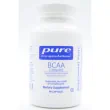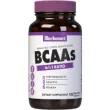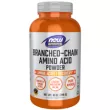Amino Acids Help Preserve Lean Muscle Mass

Key Takeaways
Amino acids' role in muscle preservation:- Essential for Muscle Health: Amino acids are crucial for maintaining lean muscle mass.
- Leucine's Importance: Particularly vital for stimulating muscle protein synthesis.
- BCAAs Benefits: Branched-chain amino acids support muscle recovery and growth.
- Dietary Sources: Emphasizes obtaining amino acids from food for optimal health.
Article by Arnie Gitomer Oct 5, 2023
Introduction
In the pursuit of a healthy and fit body, one aspect that often takes center stage is the preservation of lean muscle mass. Lean muscle mass is crucial not only for physical strength and functionality but also for a faster metabolism and overall well-being. Amino acids, the building blocks of proteins, play a vital role in preserving lean muscle mass. In this article, we will explore how amino acids contribute to muscle preservation, the essential amino acids required, the role of amino acid supplements, dietary sources, and other key factors to consider for maintaining lean muscle mass.
The Importance of Lean Muscle Mass
Before delving into the specifics of amino acids and muscle preservation, let's understand why lean muscle mass is so important. Lean muscle mass refers to the non-fat component of the body, consisting of muscles, bones, organs, and tissues. Here are a few reasons why it should be a priority:
- Enhanced Metabolism: Lean muscle mass increases the body's metabolic rate, leading to more calories burned even at rest.
- Strength and Functionality: Muscles provide strength, stability, and support for daily activities, promoting a higher quality of life.
- Injury Prevention: Well-developed muscles help protect joints, reducing the risk of injuries and promoting better posture.
- Body Composition: A balanced ratio of lean muscle mass to body fat contributes to an aesthetically pleasing physique.
- Longevity and Aging: Preserving lean muscle mass can slow down age-related muscle loss, known as sarcopenia.
Understanding Amino Acids
Amino acids are organic compounds that serve as the building blocks of proteins, which are essential for numerous biological processes in the body. There are 20 primary amino acids, each with a specific role in maintaining various bodily functions. These amino acids can be categorized into two main groups: essential and non-essential.
Essential amino acids cannot be synthesized by the body and must be obtained through diet or supplementation. Non-essential amino acids, on the other hand, can be produced by the body itself, although dietary sources also contribute to their availability.
Essential Amino Acids and Their Role in Muscle Preservation
Among the essential amino acids, several have a significant impact on muscle preservation. These amino acids include leucine, isoleucine, valine, lysine, methionine, phenylalanine, threonine, tryptophan, and histidine. Each of these amino acids has unique functions related to muscle health and protein synthesis.
Leucine: The Key Amino Acid for Muscle Protein Synthesis
Leucine, in particular, stands out as a crucial amino acid for muscle preservation. It plays a central role in stimulating muscle protein synthesis, the process by which muscle fibers are repaired and rebuilt. Leucine activates the molecular pathway called the mammalian target of rapamycin complex 1 (mTORC1), which is responsible for initiating protein synthesis and promoting muscle growth.
Studies have shown that leucine supplementation, in combination with resistance exercise, can enhance muscle protein synthesis and promote greater gains in lean muscle mass. It is recommended to consume leucine-rich foods or consider leucine supplements as part of a muscle preservation strategy.
Other Essential Amino Acids for Muscle Health
While leucine takes the spotlight, other essential amino acids also contribute to muscle health. For instance:
- Isoleucine and valine, together with leucine, form the group known as branched-chain amino acids (BCAAs). These amino acids aid in muscle recovery, reduce muscle soreness, and promote endurance during exercise.
- Lysine plays a role in collagen formation, which is essential for maintaining the integrity and strength of muscles, tendons, and ligaments.
- Methionine is involved in the synthesis of creatine, an important compound for energy production during high-intensity exercise.
- Phenylalanine is a precursor to tyrosine, a key neurotransmitter involved in muscle contractions and coordination.
- Threonine supports muscle tissue repair and growth, along with the production of antibodies and enzymes.
- Tryptophan contributes to the production of serotonin, a neurotransmitter that regulates mood and improves sleep quality.
- Histidine is involved in the synthesis of histamine, which promotes vasodilation and improves blood flow to muscles during exercise.
Branched-Chain Amino Acids (BCAAs) and Muscle Preservation
BCAAs, consisting of leucine, isoleucine, and valine, have gained significant popularity in the fitness and bodybuilding community for their potential in preserving lean muscle mass. These amino acids are unique because they are primarily metabolized in muscle tissue, making them readily available for energy production during exercise.
Research suggests that BCAA supplementation can reduce exercise-induced muscle damage, enhance muscle protein synthesis, and decrease muscle protein breakdown. This combination of effects promotes an overall positive muscle protein balance, facilitating the preservation and growth of lean muscle mass.
It's important to note that while BCAAs can be beneficial, obtaining a balanced intake of all essential amino acids is essential for optimal muscle health. Therefore, relying solely on BCAA supplements may not provide the full spectrum of amino acids necessary for muscle preservation.
Amino Acid Supplements for Muscle Preservation
Amino acid supplements have gained popularity as a convenient and effective way to support muscle preservation, especially for individuals with specific dietary restrictions or increased protein requirements. These supplements typically come in the form of powders, capsules, or ready-to-drink beverages.
Supplementing with amino acids can provide a quick and concentrated source of essential amino acids, ensuring the body has an adequate supply to support muscle protein synthesis and repair. Leucine supplements, in particular, are commonly used to promote muscle growth and preserve lean muscle mass.
When considering amino acid supplements, it's crucial to choose high-quality products from reputable manufacturers. Look for supplements that undergo third-party testing to verify their purity, potency, and absence of contaminants. Additionally, consult with a healthcare professional or a registered dietitian before starting any new supplement regimen.
Best Dietary Sources of Amino Acids for Muscle Health
While amino acid supplements can be beneficial, obtaining essential amino acids from whole foods is generally preferred due to their additional nutritional benefits. Including a variety of protein-rich foods in your diet ensures a well-rounded intake of essential amino acids. Some excellent dietary sources of amino acids for muscle health include:
- Lean meats: Chicken, turkey, beef, and pork are rich in all essential amino acids.
- Fish and seafood: Salmon, tuna, sardines, shrimp, and other seafood options provide high-quality protein and omega-3 fatty acids.
- Eggs: Whole eggs are a complete protein source, containing all essential amino acids.
- Dairy products: Milk, yogurt, cheese, and cottage cheese are excellent sources of essential amino acids, especially leucine.
- Legumes: Beans, lentils, and chickpeas offer a plant-based source of protein and essential amino acids.
- Quinoa: This grain-like seed is a complete protein, providing all essential amino acids.
- Soy products: Tofu, tempeh, and edamame are rich in amino acids and are popular plant-based protein options.
- Nuts and seeds: Almonds, walnuts, chia seeds, and hemp seeds offer protein and essential amino acids, along with healthy fats.
Including a combination of these foods in your diet ensures a diverse amino acid profile, supporting muscle preservation and overall health.
The Role of Exercise in Muscle Preservation
While amino acids play a crucial role in muscle preservation, regular exercise, particularly resistance training, is equally important. Exercise acts as a stimulus for muscle protein synthesis, prompting the body to repair and rebuild muscle fibers.
Engaging in resistance training exercises such as weightlifting, bodyweight exercises, or using resistance bands helps stimulate muscle protein synthesis and counteract the natural decline in muscle mass that occurs with age. Combining exercise with an adequate intake of essential amino acids optimizes the body's ability to preserve and build lean muscle mass.
It's important to note that the intensity, frequency, and duration of exercise should be tailored to individual fitness levels and goals. Consulting with a qualified fitness professional or personal trainer can help design a personalized exercise plan that aligns with your muscle preservation objectives.
Common FAQs About Amino Acids and Muscle Mass Preservation
1. Can amino acids help prevent muscle loss during aging?
Yes, amino acids, particularly essential amino acids, can play a significant role in preventing age-related muscle loss. As we age, muscle protein synthesis decreases, and muscle protein breakdown increases, leading to a gradual decline in muscle mass. By ensuring an adequate intake of essential amino acids, especially leucine, along with regular exercise, muscle preservation can be enhanced.
2. Is it necessary to consume amino acids immediately after exercise?
While immediate post-exercise nutrition is important for muscle recovery, the timing of amino acid consumption can vary depending on individual preferences and goals. Some studies suggest that consuming essential amino acids within a few hours after exercise can be beneficial for muscle protein synthesis. However, as long as your daily protein and amino acid requirements are met through a well-balanced diet, the exact timing of consumption may not be critical.
3. Are there any side effects of amino acid supplementation?
Amino acid supplements, when used as directed, are generally safe for most individuals. However, high doses of certain amino acids, particularly single amino acid supplements, may have adverse effects. For example, excessive methionine supplementation can lead to elevated homocysteine levels, which may increase the risk of cardiovascular disease. It's important to follow the recommended dosage and consult with a healthcare professional before starting any new supplement regimen.
4. Can vegetarians and vegans meet their amino acid requirements?
Yes, vegetarians and vegans can meet their amino acid requirements through plant-based protein sources. By combining different plant proteins, such as legumes and grains, individuals can obtain a complete spectrum of essential amino acids. However, it's essential to ensure a varied and balanced diet to meet the specific amino acid needs of the body.
5. Are there any risks associated with consuming too many amino acids?
Consuming a balanced and varied diet that includes essential amino acids is generally safe and beneficial. However, excessive intake of specific amino acids through supplements or isolated sources may pose risks. It's always advisable to prioritize whole foods as the primary source of amino acids and consult with a healthcare professional or a registered dietitian for personalized guidance.
How Much Protein and Amino Acids Do You Need?
The recommended daily protein intake varies depending on factors such as age, sex, weight, and physical activity levels. The Dietary Reference Intake (DRI) suggests a protein intake of 0.8 grams per kilogram of body weight for sedentary adults. However, individuals engaged in regular physical activity or resistance training may require higher protein intakes to support muscle preservation and recovery.
In terms of essential amino acids, there is no established daily requirement for each individual amino acid. Instead, it is recommended to focus on consuming a variety of high-quality protein sources to ensure an adequate intake of all essential amino acids.
Can Amino Acid Supplements Replace Whole Foods?
While amino acid supplements can be beneficial, they should not replace a well-balanced diet consisting of whole foods. Whole foods offer additional nutrients, fiber, and other bioactive compounds that promote overall health and well-being. Amino acid supplements should be seen as a complement to a nutritious diet, particularly for individuals with increased protein requirements or specific dietary restrictions.
Combining Amino Acids and Resistance Training for Optimal Results
To maximize the benefits of amino acids for muscle preservation, combining their intake with regular resistance training is crucial. Resistance training stimulates muscle protein synthesis, while amino acids provide the necessary building blocks for muscle repair and growth.
Aim to consume a balanced meal or snack containing protein-rich foods that provide a complete spectrum of essential amino acids within a few hours before or after your exercise session. This timing ensures that the amino acids are available when your body needs them the most, optimizing muscle preservation and recovery.
Conclusion
Preserving lean muscle mass is vital for overall health, functionality, and a higher metabolic rate. Amino acids, particularly essential amino acids like leucine, play a significant role in muscle preservation by stimulating muscle protein synthesis and repair. By incorporating a combination of amino acid-rich foods, regular resistance training, and, if necessary, targeted amino acid supplementation, individuals can enhance muscle preservation and achieve their fitness goals. Remember to consult with a healthcare professional or a registered dietitian to determine the best approach based on your specific needs and circumstances.
 |
Read more about Arnie Gitomer |
Product Search Results

|
Bcaa Vca | Pure Encapsulations | Login for Willner pricing. $29.50 | 43951 |

|
Bcaa vCap | Bluebonnet | $34.00 | 59074 |

|
Branched Chain Amino Acid powder | Now Foods | $35.99 | 60598 |

|
Branched Chain Amino Acids | Life Extension | $14.63 | 61450 |
